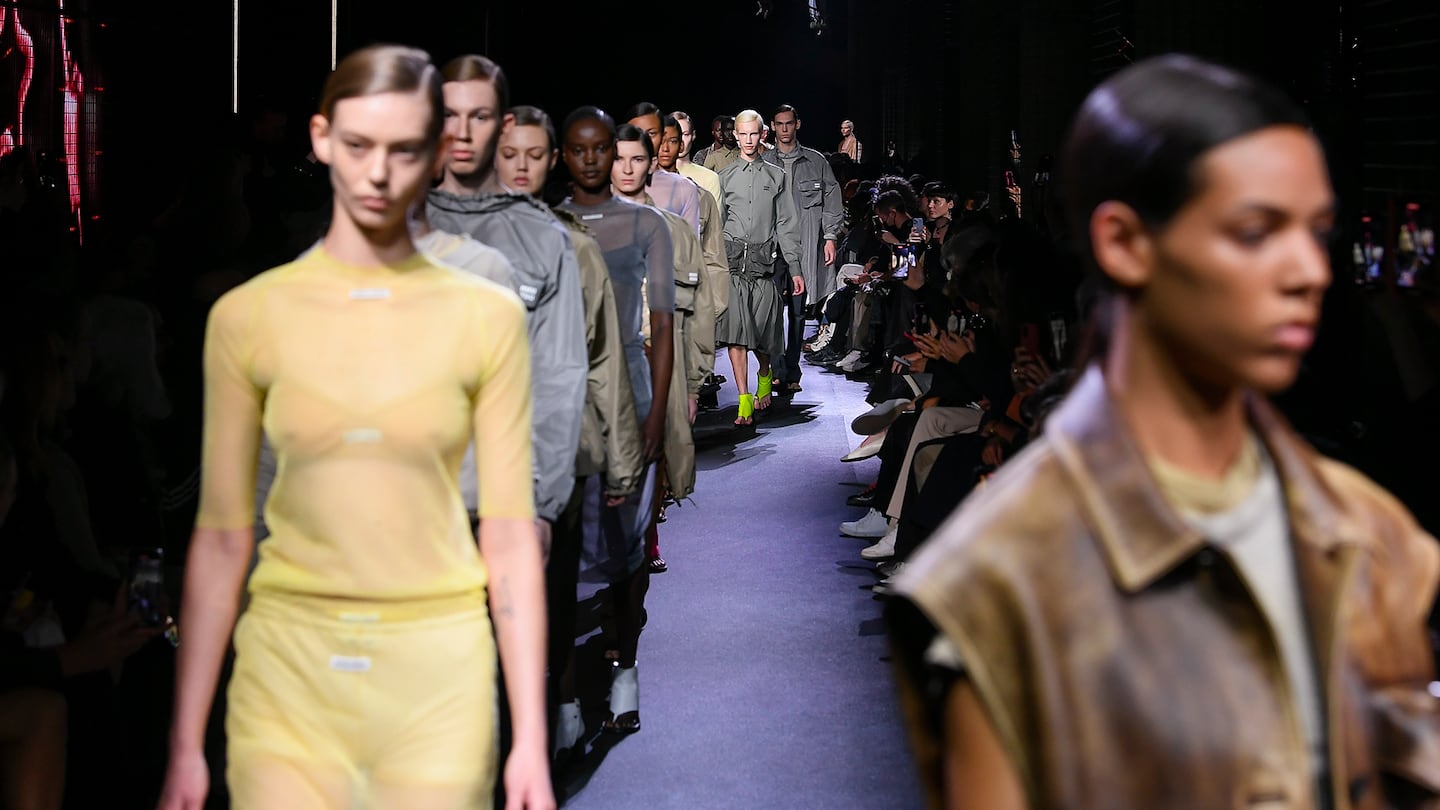
The Business of Fashion
Agenda-setting intelligence, analysis and advice for the global fashion community.

Agenda-setting intelligence, analysis and advice for the global fashion community.

Prada’s sister brand Miu Miu reported a historic first half — with like-for-like retail sales jumping by 50 percent — as the label’s renewed runway buzz translated into a soaring revenues. Sales at its flagship Prada brand grew 18 percent, the Milanese fashion group said.
In a call with analysts, Prada’s revamped management team cited the cultural relevance and clarified positioning of Miu Miu as a key growth driver, as well as the brand’s exposure to Asian markets where sales are rebounding from coronavirus shutdowns last year).
In October 2021, the company unveiled a more legible, social media-friendly brand platform for Miu Miu, focusing on rebellious twists on classic collegiate dress, which has pushed interest in the label to new heights. Miu Miu has since continued to develop those themes, deploying ironically ladylike officewear, ballet flats, luxe tights and retro pedal pushers. A revamped handbag program has invoked the early 2000s It-bag aesthetic but with a timeless touch that helped keep items from feeling overly trendy.
Prada Group’s first-half revenues of €2.2 billion rose 20 percent year-on-year, slightly missing analyst estimates. Sales rose sharply among Asian customers, while Europeans “normalised, but remain very solid,” chief executive officer Andrea Guerra said.
ADVERTISEMENT
Like many competitors, Prada Group is facing slowing demand in the key US market, where its retail sales fell 1 percent in the first half. Still, the group said its business with American clients continues to grow overall, with a low-single digit sales increase once sales to US tourists in Europe were taken into account.
Last week, declining sales at Cartier-owner Richemont sent its shares tumbling as much as 10 percent in one day. Earlier this week sector leader LVMH reported similar weakness in the US, citing lower demand from aspirational customers.
Prada Group’s strong results — nearly in line with LVMH’s 20 percent fashion second-quarter growth — suggest that the company has the necessary momentum to navigate an increasingly uncertain fashion market without the backing of a major conglomerate.
The company recently recast its executive ranks in a bid to bolster governance and ease the transition to its next generation of leaders: While controlling shareholder Miuccia Prada remains co-creative director alongside Raf Simons, she relinquished her co-CEO title upon the arrival of former Luxottica chief Guerra earlier this year. Her husband Patrizio Bertelli also relinquished his CEO title, transitioning to an executive chairman role. Additionally, the group named a new brand-level chief executive at Prada, Gianfranco D’Attis, formerly of Dior.
Editor's Note: This story was updated on July 27, to clarify group revenues reached €2.2 billion in the first half.
The Milanese group, which also owns Miu Miu and Church’s, leveraged a partnership between Miuccia Prada and Raf Simons to generate record sales. A Thursday presentation gave investors a first peek at Prada’s future plans under new leadership.
Patrizio Bertelli and Miuccia Prada are stepping down as the group’s co-CEOs, passing the reins to former Luxottica chief Andrea Guerra and hiring a new leader for their flagship Prada brand.
Luca Solca examines Prada Group CEO Andrea Guerra’s push to double retail space productivity at its flagship brand.

Robert Williams is Luxury Editor at the Business of Fashion. He is based in Paris and drives BoF’s coverage of the dynamic luxury fashion sector.
The Swiss watch sector’s slide appears to be more pronounced than the wider luxury slowdown, but industry insiders and analysts urge perspective.
The LVMH-linked firm is betting its $545 million stake in the Italian shoemaker will yield the double-digit returns private equity typically seeks.
The Coach owner’s results will provide another opportunity to stick up for its acquisition of rival Capri. And the Met Gala will do its best to ignore the TikTok ban and labour strife at Conde Nast.
The former CFDA president sat down with BoF founder and editor-in-chief Imran Amed to discuss his remarkable life and career and how big business has changed the fashion industry.